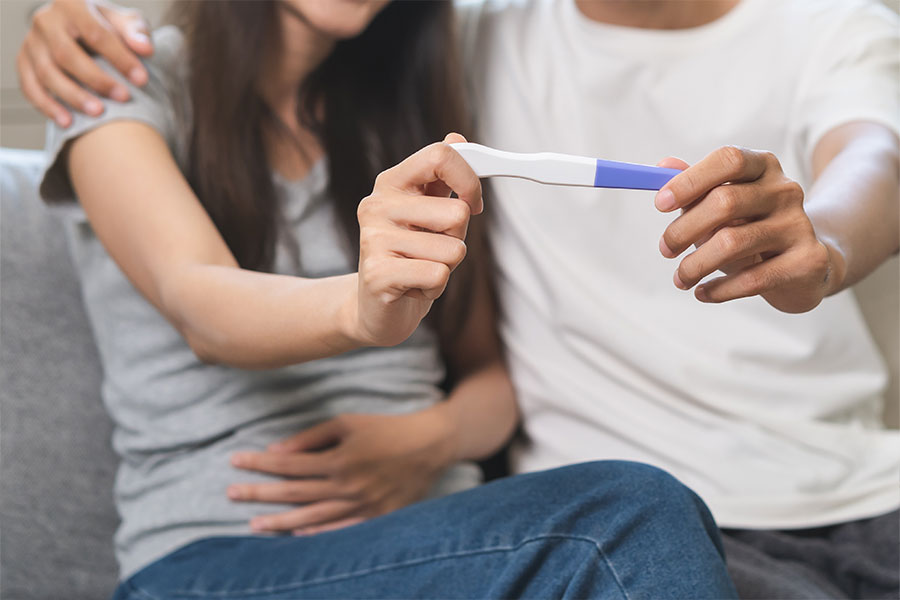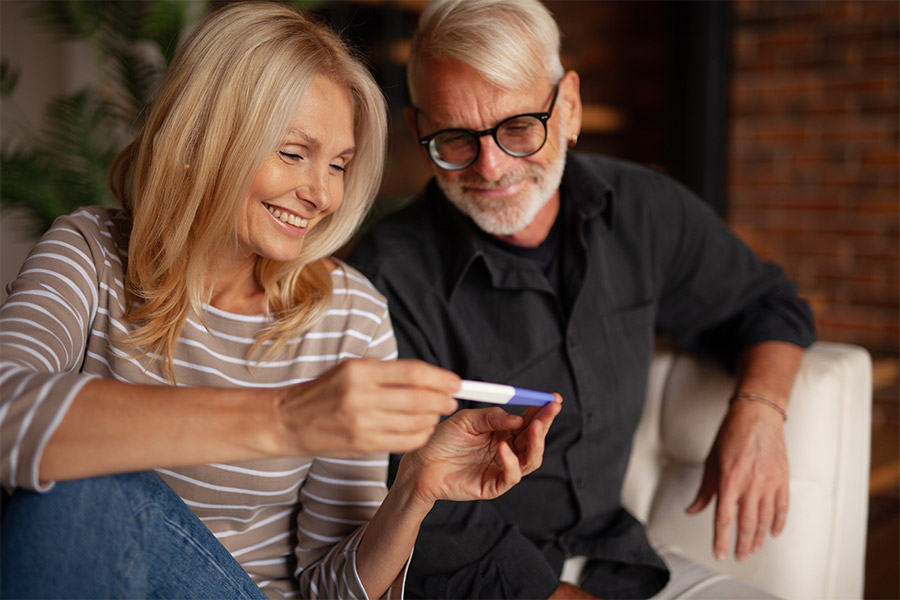IVF with donor eggs
Helping you create a family
IVF with donor eggs with NOW-fertility
IVF with donor eggs is an established and regulated fertility treatment in which the patient does not use her own eggs but instead uses either fresh or frozen donated eggs in an IVF treatment cycle. At NOW-fertility we offer treatment through established egg donation programmes at our partner fertility clinics in Europe and also work with an affiliated egg bank to provide frozen eggs that are available immediately, meaning that you can start your treatment without any delay.
Personalised care for the best chance of success
- Choice of outstanding, state-of-the-art clinics where IVF with donor eggs is legally available
- Donor eggs available immediately
- Diverse donor options to fit your characteristics, preferences and plans
- No waiting time to start treatment
- Consistently high pregnancy rates
- No age restrictions, depending on physician decision, fitness status and general wellbeing
- Full support throughout the process of donor eggs selection and transportation
- Secure and compliant transportation of frozen donor eggs available with specialist couriers
- Access to counsellors and fertility coaches for emotional and psychological support
- Continuity of care from one dedicated and experienced team
- Multilingual fertility experts available to contact at any time
- Flexibility to stay close to home for most of your treatment cycle
- Travel overseas to your chosen clinic only required for a few days
- Concierge service available to assist with travel plans, accommodation and more
- Transparent and guaranteed pricing
How does it work with NOW-fertility?
- You’ll first of all have a consultation with your consultant, followed by a consultation with your nurse to complete your characteristics profile form, screening tests and consent forms so that you can start treatment.
- Your NOW-fertility team will match a donor for you through our affiliated egg bank or through an egg donation programme at your chosen clinic.
- We’ll also arrange for you a consultation with one of our qualified and certified counsellors who will help you to better understand the broader implications of treatment with donor eggs and to make informed decisions.
- Once a donor is chosen and agreed upon, you’ll have another consultation with your consultant to discuss your personal treatment plan.
- Hormone tablets need to be taken for 15 – 20 days before transfer to prepare your womb for embryo implantation. During this time you will be monitored by ultrasound scan and blood tests, which we will arrange for you close to where you live or work.
- When you attend your chosen clinic, the donor eggs are fertilised in the laboratory either with sperm from your male partner, or from a sperm donor. Fertilised eggs are usually cultured as embryos for five to six days until they reach the blastocyst stage.
- Created embryos will either be transferred in a fresh embryo cycle or frozen to be used later in a frozen thawed embryo transfer cycle.
Is IVF with donor eggs right for me?
IVF with donor eggs is used for:
- Women of advanced reproductive age
- Women with premature ovarian failure
- Women who have diminished ovarian reserve
- Women with poor oocyte and/or embryo quality or multiple previous failed IVF cycles
- Women with high risk of transmitting a genetic disease to their children
Where can I have IVF with donor eggs with NOW-fertility?
- Greece
- Italy
- Poland
- Spain
- UK
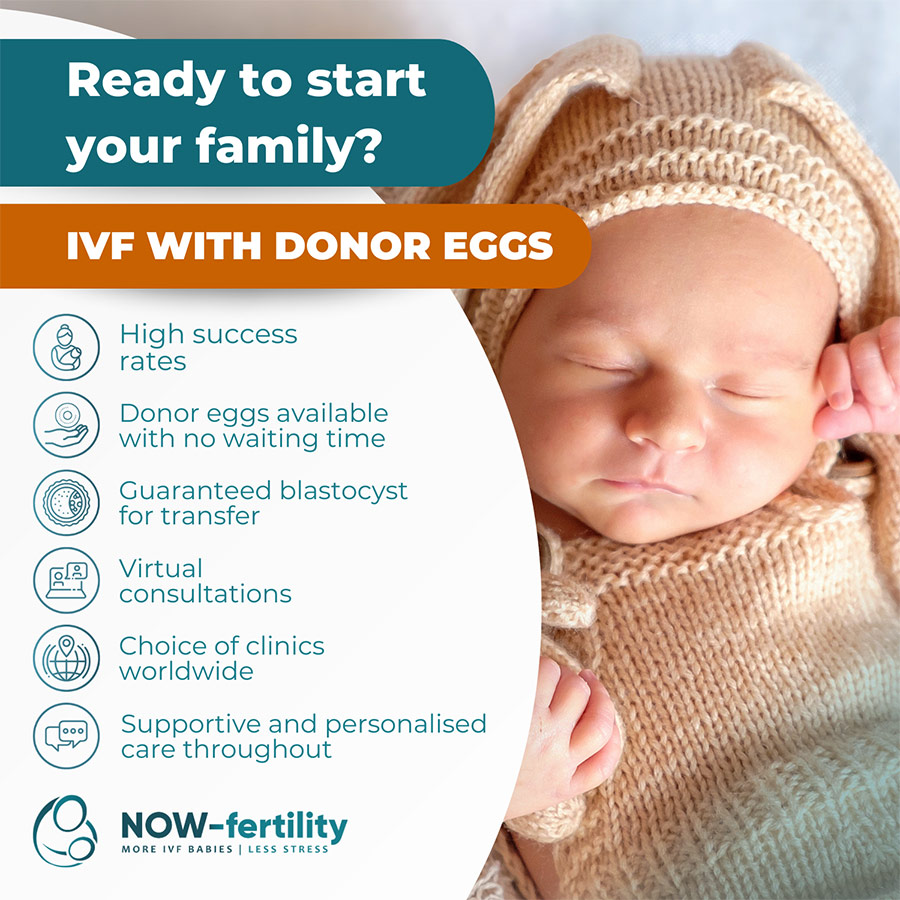
Contact NOW-fertility to learn more about IVF with donor eggs
Our care team are here to explore your fertility journey and guide you through your options.
Our expertise in IVF with donor eggs
Our egg donation team at NOW-fertility consists of professional and multilingual care coordinators, nurses and consultants with extensive experience in managing IVF with donor eggs cycles. They provide personalised support and advice to ensure the best chance of success.
Our affiliated egg bank is well established. They select their donors with great care to ensure that only the highest quality eggs are provided.
We offer IVF with donor eggs in some of our partner clinics worldwide who all have consistently high success rates.
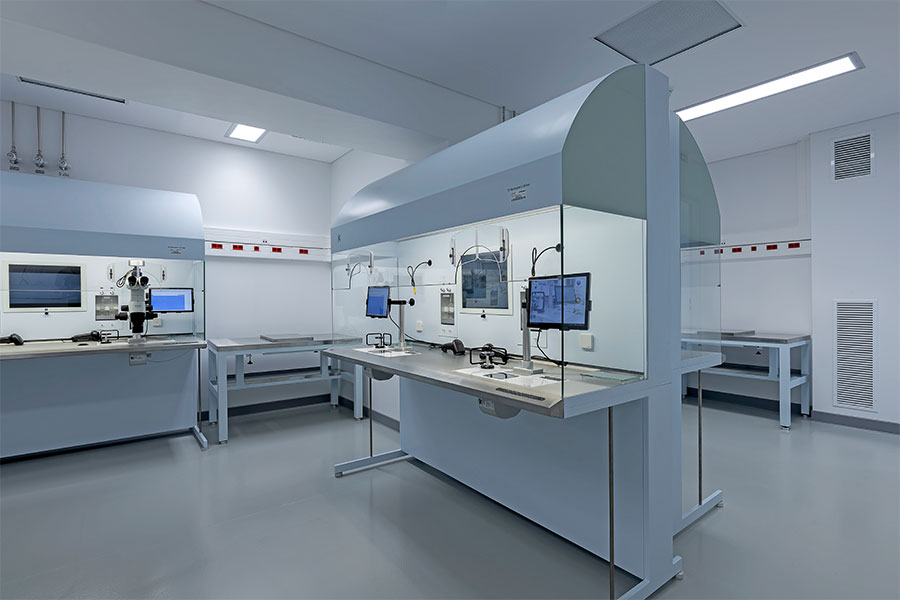
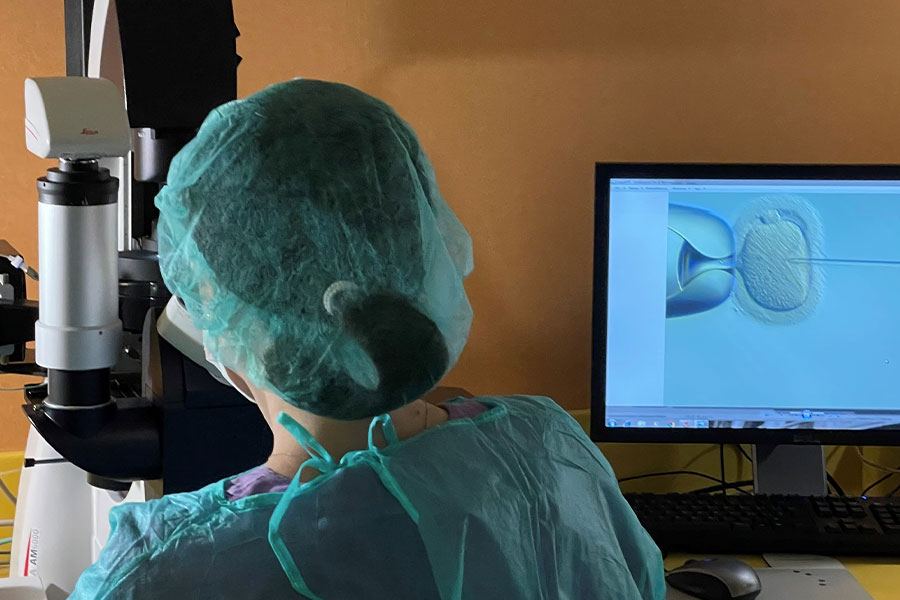
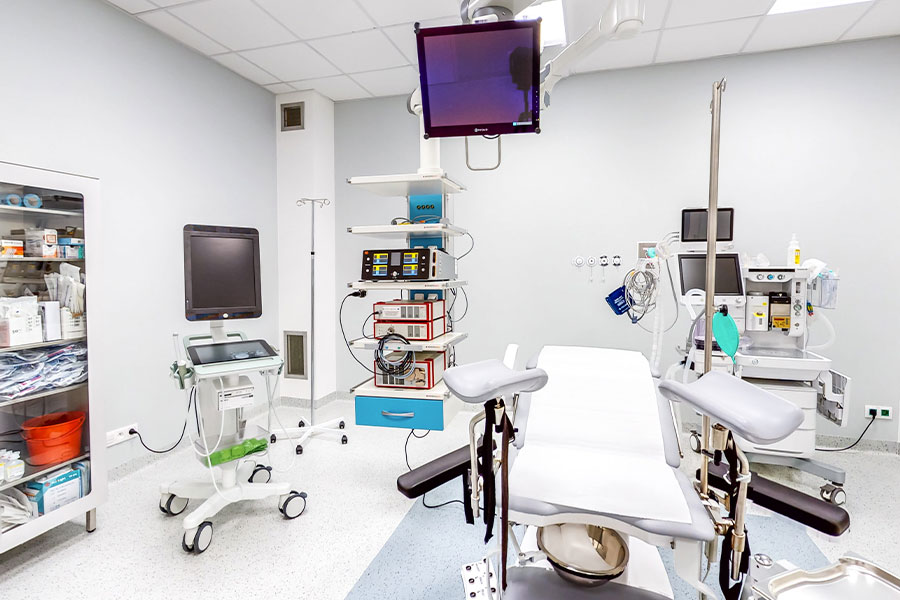
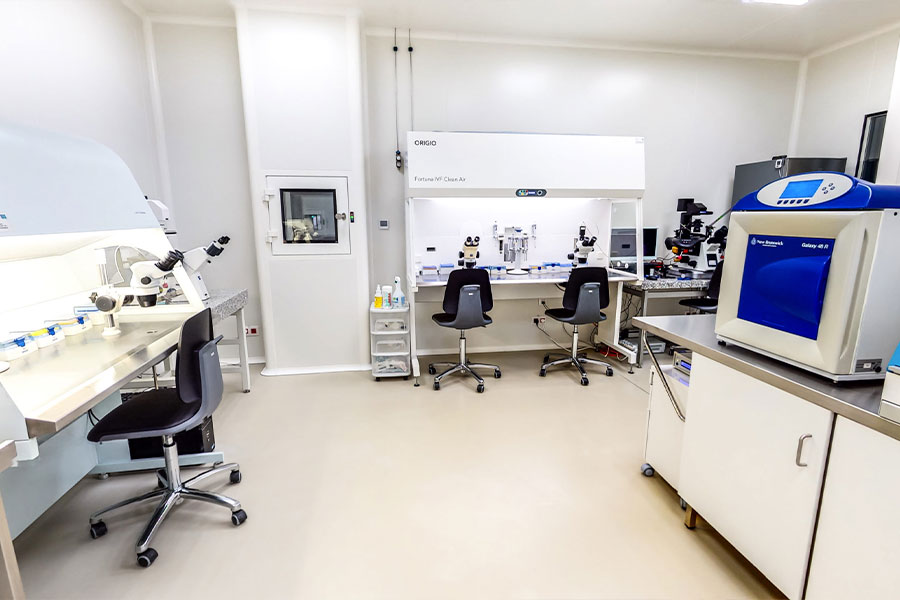
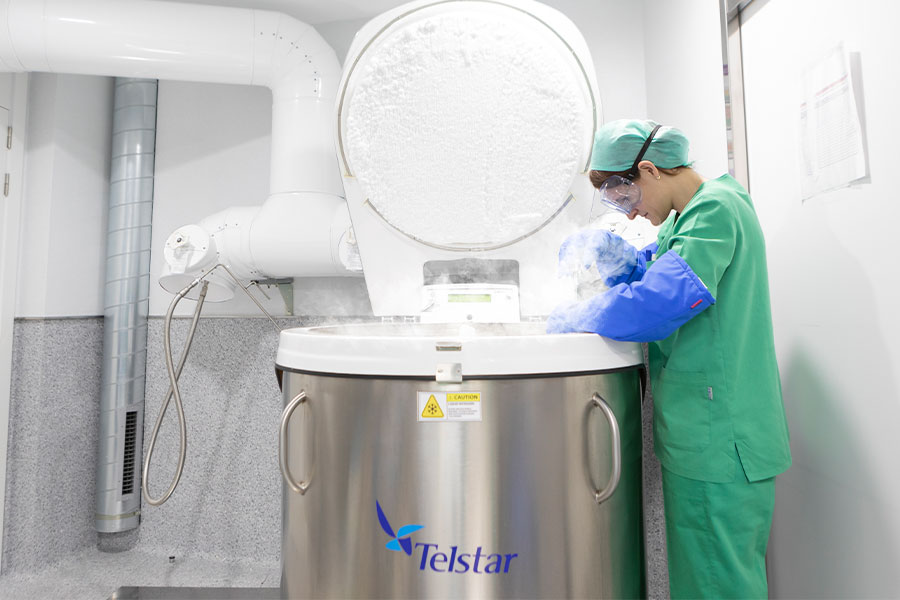
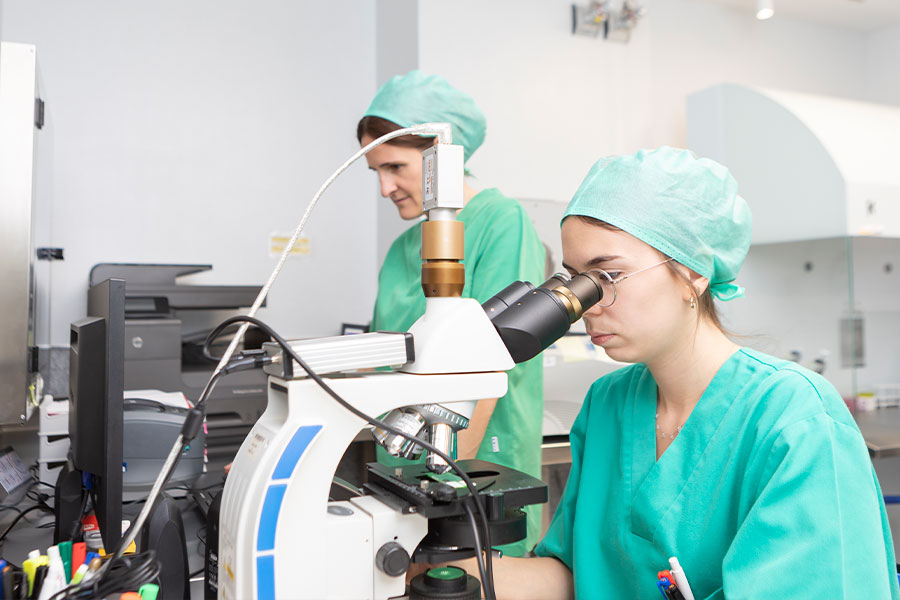
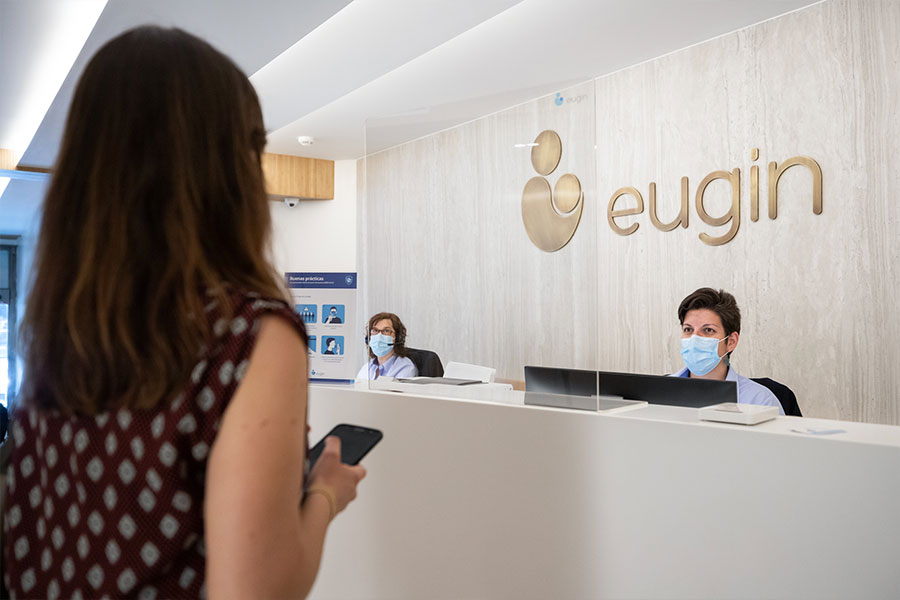

Why we are different
- Global network of clinics
- Treatment personalised to you
- Transparent, individualised pricing
- Virtual appointments & enhanced monitoring
- Multilingual expert team
Ready to start your journey?
Our commitment is to make fertility care accessible, successful and stress free for patients.
If you are ready to start your journey, book a consultation with one of our experienced fertility consultants.
